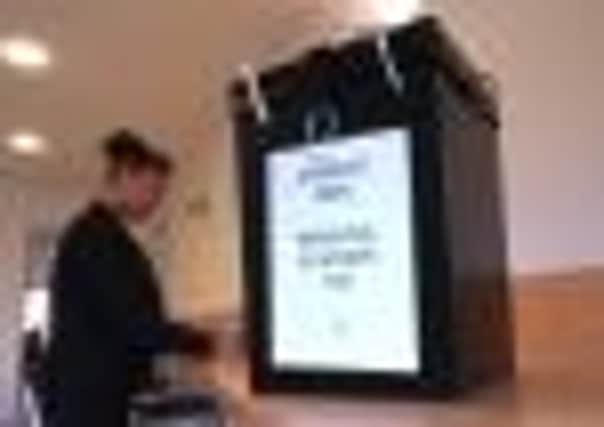Letters: Poll could split the country whatever the end result is


It’s not difficult to imagine, Buchan, say, and the Highlands delivering a strong vote for independence, only to have their ambition crushed by an even stronger vote from their southern cousins favouring the Union.
A difference not so important in elections to Holyrood – where you’ve always a theoretical chance to change a government in every five years – but the referendum on independence is a no-way-back decision: not the same.
Advertisement
Hide AdAdvertisement
Hide AdWould we be looking at a distant, future potential partition, as two parts of Scotland travel in radically opposite political directions? Perish the thought. I tell myself, “No; that can’t happen here”... but as we approach the reckoning it’s worth remembering that in the 1920s there were many folk in the current six counties who thought that Ireland would never split: look at it now.
The need for independence is as keen in those who support it, as is the desire to remain in the Union in the rest. All it will require is for the vote to be strongly regional, and we could be on the way. You never know, one day you might even be entering Free Peoples’ Republic of North Scotland as you drive into Perth.
David Fiddimore, Calton Road, Edinburgh
Scottish lords put themselves first
I WAS unsurprised to learn Lords Wallace, Steel, Forsyth and McConnell had formed an unholy quartet to sound off on the benefits of the Union. After all, independence for Scotland would put them out of a job.
What did astonish me was McConnell’s description of the Treaty of 1707 as ‘the most successful voluntary Union the world has known”.
Advertisement
Hide AdAdvertisement
Hide AdHe must know that the treaty was signed in a poky little basement, in Edinburgh, and smuggled across the border. When it became public knowledge, there was rioting in Glasgow, Edinburgh and indeed throughout Scotland!
Joseph G Miller, Gardeners St, Dunfermline, Fife
Why take train if bus travel is free?
IT must be the silly season as Mr Ruderham (Letters, October 13) ) has missed the whole point of my letter!
I am fully aware that a bus pass does not allow free train travel ... my point was, if all the pensioners can travel free by bus, who will use the train to and from the Borders?
I was also interested in that he states “that the track could be as far south as Eskbank by March” so I am tempted to ask why the problem of crossing over or burrowing under the by-pass near Sheriffhall does not appear to have been addressed, and if it has, where is the evidence?
Scott Miller, Coillesdene Avenue, Joppa, Edinburgh
Escalator yobs let everyone down
Advertisement
Hide AdAdvertisement
Hide AdVERONICA Noble (Letters, October 12), has every right to be annoyed at the lack of reliability of these new escalators. However, it’s not about inclement weather or poor manufacturer but generally vandals. Certain yobs get great enjoyment in pressing the emergency stop buttons.
Colin C Maclean, Hillpark Avenue, Edinburgh
Get us building for future again
OUR most recent survey of Scottish Building Federation members shows industry confidence continuing to slide backwards, down 34 points in the past year.
We will continue to plead the case for more capital investment. There’s no escaping the fact that the Scottish Government is due to spend £2.2 billion less on capital projects over the next three years than it has over the past three. That’s a reduction of 23 per cent.
At a time when there are still few signs of life in the private sector, we must strain every sinew to commit more public resources towards building the infrastructure our economy needs to recover.
Advertisement
Hide AdAdvertisement
Hide AdMeanwhile, too much unnecessary cost and bureaucracy remains built into the system for awarding public sector construction contracts in Scotland.
There is an urgent need to overhaul public procurement to make it fit for purpose and get the industry building again.
Michael Levack, chief executive, Scottish Building Federation, Edinburgh